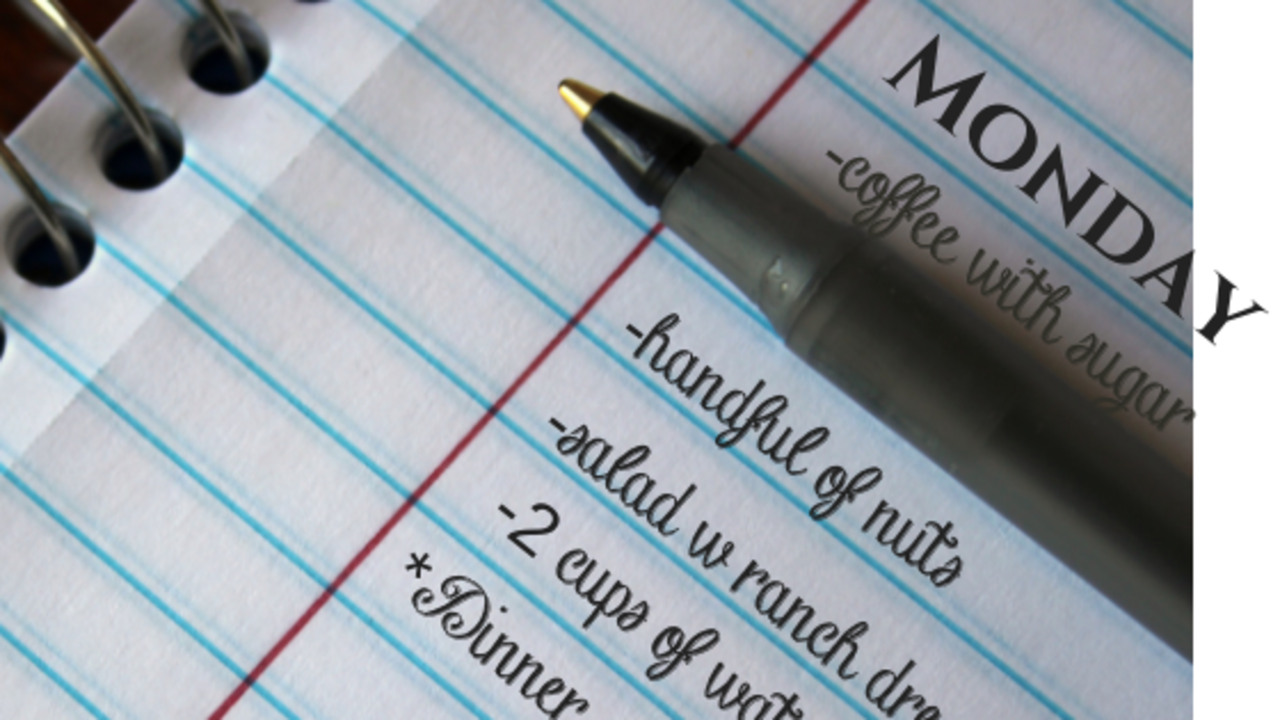Why You Should Keep a Food Journal

I have yet to come across someone who actually wants to keep a food journal. It is probably the oldest recommendation for losing weight. And, guess what? It works. There are numerous studies that confirm this to be factually true. One study at Kaiser Permanente's Center for Health Research estimates that participants who kept a daily record lost twice as much weight as those who did not! We don't really need a study to know that this is true. The controversial and famous Peter Drucker quote, "What gets measured gets managed.," is definitely true when it comes to managing your weight.
I know that it can feel tedious and inconvenient to write down everything that we eat. But,keeping a food journal works because it literally forces us to stop and think about what we are eating. It sounds simple, but it is true. You would think that we would all be extremely conscious of what we are putting in our mouths! But, the simple truth is that many of us aren't. I have heard many people say something like, "I just found myself in the drive through," or "Before I knew it, the doughnut was gone and I didn't even realize I was eating it!" Because we have to eat to live, eating becomes a "habit." It can become something that we do without really thinking about it. But, if we are trying to lose weight-we have to think about it-and that isn't a lot of fun for most people.
What we are doing is literally bringing this habit to the forefront our our minds-and that takes energy. Our brain wants to be efficient and effective. Keeping a food journal interrupts that efficiency at first, and that can feel very inconvenient. But the upside is absolutely worth it. For starters, many times we come across small habits that aren't difficult to change-like cutting out orange juice in the morning, or limiting the amount of added sugar in coffee. Some people can begin to feel a shift just by switching breakfast choices or leaving the restaurant dinner rolls on the table. The other benefit of tracking food is that it also sheds light on when, where and why we are eating. I cannot tell you how many clients have told me the they are "generally healthy eaters,” and honestly believe it-until we look at the food journal. It is an amazing tool and helps us see the whole picture and patterns that we would have missed otherwise.
Some people resist keeping a journal because they end up feeling "bad" about what they ate. Herein lies another benefit to keeping a journal-you get to begin to watch your own thoughts about yourself! The journal pulls back the curtain on how you are taking to yourself about what you eat. This is an amazing meta-skill: watching your own thoughts. The way that we talk to ourselves, especially about our bodies and our choices has a huge impact on our future choices. So keeping a food journal is an opportunity to practice new thoughts and choose to think of the food journal in a way that actually serves you. I like to prompt clients to look at it like a school science experiment and you are just taking notes. You get to be the scientist and analyze the data from an academic point of view and obtain objectivity from which to make future choices.
Keeping a food journal is a virtual gateway into your mental, emotional and physical hunger. We know that if we are overweight, we are overeating. So, we need to figure out why we are overeating and the journal makes this very clear, very quickly. Tracking what we eat is really about comparing immediate pleasure to long term joy. If we take the time now to become present and pay attention to what we are doing, we are cultivating a new habit that will stay with us for the long run. The initial inconvenience of tracking what we eat is literally the first step to changing our brains and creating new thoughts and habits that serve us in the long run.
It doesn't matter how you choose to track your food-it can be a small paper stuck in your wallet or an app on your phone. You can start the process by just recording everything you eat right after each meal or at the end of the day. Remember that you are just recording information-not judging it. If you want to make the process even more effective, write down what you are going to eat ahead of time. Then, all you have to do is follow the plan. And, if you don't follow the plan, you now have some very good information you can use! This is very valuable to know because it shines a bright light on exactly why you might be overeating. And that lets us know exactly where to begin to go beyond just watching our habits to transforming them.

